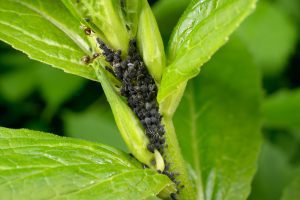How Do New Ant Colonies Start?
By Chris Williams on November 21, 2011.
How do you get new ant colonies? Don’t they all have to have a queen to start?
Yes, there has to be a queen but some colonies start with only a mated queen and no workers, and some develop secondary queens and move these with workers to new locations. Most of our pest ants use a combination of these three methods which is why they are so successful as pests:
Swarming
This is the method most of us are familiar with; pretty much everyone has seen a winged ant at some time. Winged reproductive ants develop in mature ant colonies when conditions are right and emerge from the colony as a swarm. Males and females mate. After she sheds her wings, the female finds a suitable nest site and lays eggs to begin a new colony.
The new queen takes care of the young larvae on her own until they develop into worker ants and begin taking care of others in the colony. The queen then becomes simply an egg-laying machine, continually producing more ants.
The swarming method of developing a new colony fails more often than it succeeds since it takes some time for the colony to have a work force in place. This type of colony establishment is typical of carpenter ants.
Moving
Many ants can simply pack up their colony and move it to a more desirable spot. If environmental conditions change (become too dry, too wet, food disappears, or insecticides are used), ant workers will move the queen, larvae, and eggs to a new site. The crazy ant, for example, is a highly nomadic ant that will often pick up and move the entire colony, but it also produces new colonies by budding.
Budding
Like moving the colony, budding is initiated by adverse conditions. The difference is that the original colony remains, but one or more newly mated queens leaves with workers and some brood to set up another colony. Budding is often more successful than starting a colony from scratch since the newly budded colony already has workers and brood in place. Budding is characteristic of ants that have multiple queens, like Pharaoh ants.
As you can imagine, budding makes control of these ants extremely difficult since, when the ants are disturbed by insecticides, they just split into more colonies. Then you have many more colonies to find and treat than when you started.
Photo credit: qmnonic / Foter / CC BY
Sign up for our biweekly email newsletter for more information about bugs and pests!
